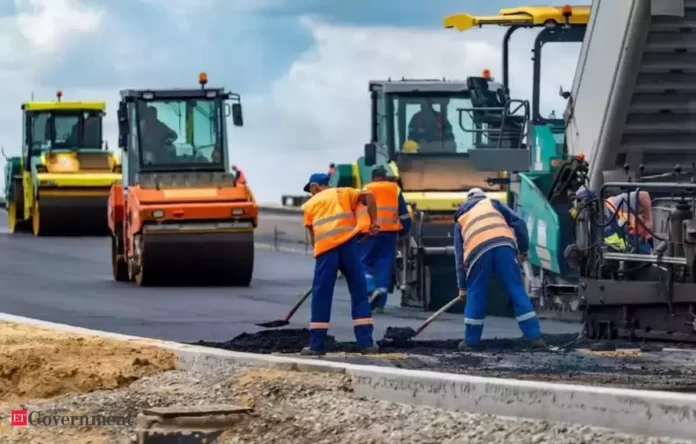The construction of robust road infrastructure along the India-China border in Arunachal Pradesh has taken a revolutionary turn, with the Border Road Organisation (BRO) adopting an indigenous technology called ‘REJUPAVE.’ Developed by the Council of Scientific and Industrial Research-Central Road Research Institute (CSIR-CRRI), this technology has proven effective in addressing challenges posed by low and sub-zero temperature conditions during road construction.
Challenging Terrain and Winter Constraints
The harsh terrain and extreme winter conditions in Arunachal Pradesh have traditionally presented challenges for road construction agencies, especially in the production and transportation of bituminous mix required for high-altitude roads. The difficulty arises due to the need for elevated temperatures ranging from 160 to 170 degrees Celsius in a hot mix plant, leading to delays and inferior mix quality during transportation.

BRO’s Project VARTAK in Arunachal Pradesh has successfully implemented the ‘REJUPAVE’ technology to construct high-altitude bituminous roads. This indigenous technology, developed by CSIR-CRRI, significantly reduces the heating requirement of bituminous mixes, ensuring effective compaction for desired durability and performance.
Successful Implementation at Key Sites
The effectiveness of the REJUPAVE technology was evident in its successful application at critical sites, including the world’s highest Sela road tunnel and the LGG-Damteng-Yangste (LDY) road section near the China border in Arunachal Pradesh. The technology facilitated the construction of bituminous road sections at altitudes of 14,000 feet and 18,000 feet, overcoming the challenges posed by sub-zero temperatures.
BRO’s Additional Director General (ADG), East, PKH Singh, highlighted the success of the technology in bringing down the production and rolling temperature of bituminous mixes by 30-40 degrees Celsius. This, coupled with negligible heat loss during transit, extends the working window for road construction companies, enabling faster-paced development under challenging conditions.
Environmental Benefits
Satish Pandey, the principal scientist of CSIR-CRRI and the inventor of REJUPAVE, emphasized that the bio-oil-based asphalt modifier not only reduces greenhouse gas emissions but also enhances the long-term durability and resistance to thermal cracking of roads in cold climatic regions.
The adoption of the REJUPAVE technology signifies a significant step towards sustainable and efficient road construction, contributing to the strategic goals of the government in enhancing border infrastructure.



